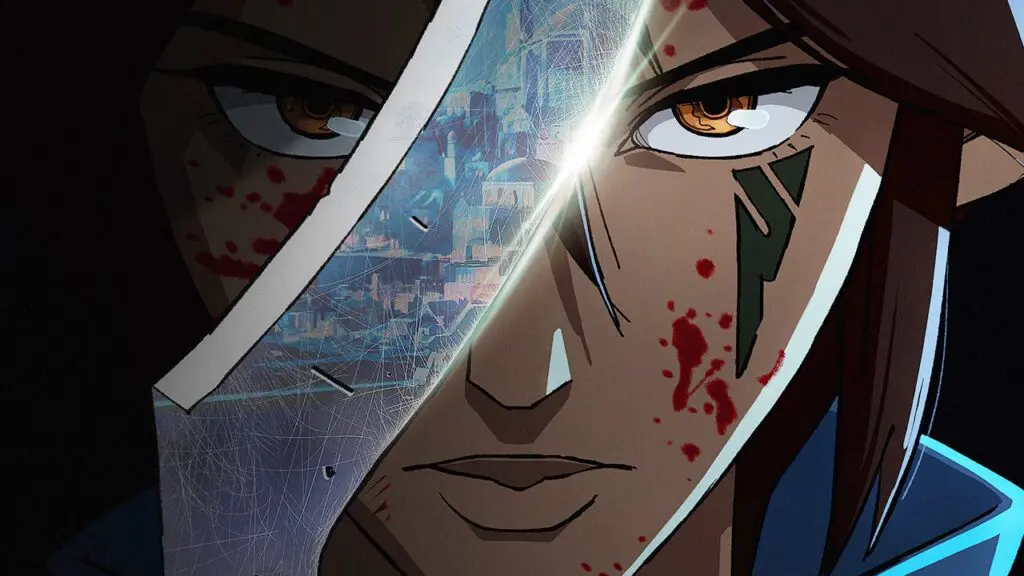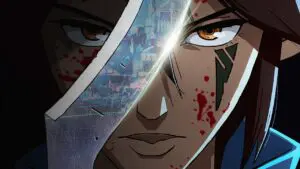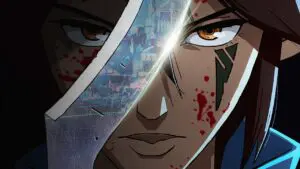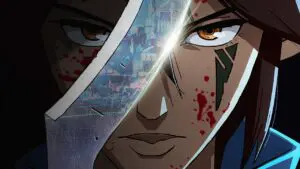Summary
Dragon Age: Absolution is as action-packed and slickly animated as fans could desire, but it feels a little thin in the story department, which might disappoint fans used to this rich lore being put to better use.
This article contains no spoilers for the Netflix anime Dragon Age: Absolution season 1.
Video game adaptations are rightly maligned, but recently, Netflix seems to have discovered the secret to them. The key, I think, is to avoid big-name stars and live-action, otherwise, you end up with some abomination like Uncharted. Animation is the way to go. Look at something like Castlevania, Arcane, Tekken: Bloodline, and the recent Cyberpunk: Edgerunners. These are all lively, creative properties that remain true to their source material while also delivering original stories and characters. Even gamers, a notoriously difficult-to-please fanbase, seem to like them for the most part.
The good news is that Dragon Age: Absolution, produced by South Korean anime studio Reddog Culture House, who worked on The Witcher: Nightmare of the Wolf, just about fits into this canon. It’s an action-packed and slickly animated six-episode adventure with fun characters and an emotional core that sticks close to the franchise’s roots of class disparity and xenophobia. However, it’s a little too brief for its own good, misses some open goals in terms of expanding the franchise’s dense lore, and can’t quite live up to the lofty standards of some of the shows listed above.
Somewhat overshadowed by the success of developer BioWare’s Mass Effect trilogy, Dragon Age was a return to the company’s Dungeons and Dragons roots, a tactical ARPG set in a sprawling fantasy world with all the classic tropes and heavy-handed subtext you could ever want from such a thing. Of the three games released in the franchise – a fourth is in production – the first, Origins, most showed the potential of the universe. It has been downhill from there, game-wise – BioWare devoted an entire development cycle to building one city and called the rough part of it “Darktown” – but the franchise has been kept alive through other media, including novels, the two previous animated series, 2010’s Warden Fall and 2011’s Redemption, and 2012’s anime film Dragon Age: Dawn of the Seeker.
Dragon Age: Absolution represents a new angle for the series fiction since it’s set during the height of the Tevinter Imperium, a human magocracy on the continent of Thedas that has been paid plenty of lip service but hasn’t been explored in the way it is here. This, I think, is the aspect in which Absolution is most disappointing, since its depiction of the Imperium is fairly standard rich white asshole stuff, focusing on only a few characters and mostly treading old ground in terms of the setting’s social politics and magical lore. (Elves get treated like dirt, basically.)
Where the series does excel, though, is in its characters. The protagonist is Miriam (Kimberly Brooks), an elf who is hired by an old love interest named Hira (Sumalee Montano) to help a gang of ruffians steal a powerful magical artifact from a palace in the city of Nessum. The gang includes some of the franchise’s usual fixtures: A toity-toity Orlesian swordsman named Roland (Phil LaMarr), a brash dwarf named Lacklon (Keston John), and – easily the MVP – a Qunari mage named Qwydion (Ashly Burch), who delivers enough comedy and charm alone to power an entire series.
Even the villain contingent is well-served, especially since “villain” is a relative term here. Rezaren (Josh Keaton), the Magister studying the artifact that Miriam and co. intend to steal, has an interesting motivation, not to mention a nice relationship with his Templar bodyguard Tassia (Zehra Fazal). His arc may feel a little herky-jerky, but that’s largely a consequence of the six short episodes devoting so much of their runtime to action – all the storytelling ends up suffering in that regard.
That action is very cool, for the most part. Absolution pops with color, and has lots of cool effects and designs, some lifted directly from the games. But in the trade-off between action and more expansive storytelling, the former wins every time, which can be a bit of a disappointment for those of us who enjoy this universe and have been waiting a long time for another significant entry into it. The focus on this core clutch of characters keeps the world feeling relatively tight, glossing over or outright ignoring some concepts that the games have gotten great mileage out of, and the series ends just as the story feels as though it’s beginning to really open up.
However, it seems like this first season is really just a proof of concept, and that by continuing to follow these characters showrunner Mairghread Scott has a lot more to wring from the franchise. I hope that’s the case, and I’d watch further seasons if Netflix wanted to give them to me. We’ll have to wait and see.
You can stream Dragon Age: Absolution season 1 exclusively on Netflix.
Additional reading:
- Dragon Age: Absolution season 1, episode 1 recap.
- Will there be a Dragon Age: Absolution season 2?
- When is Dragon Age: Absolution set?
- The Best and Highest-Rated Netflix Series
- 10 anime shows like Dragon Age: Absolution
- Top 26 Best Animated Shows on Netflix of all Time




